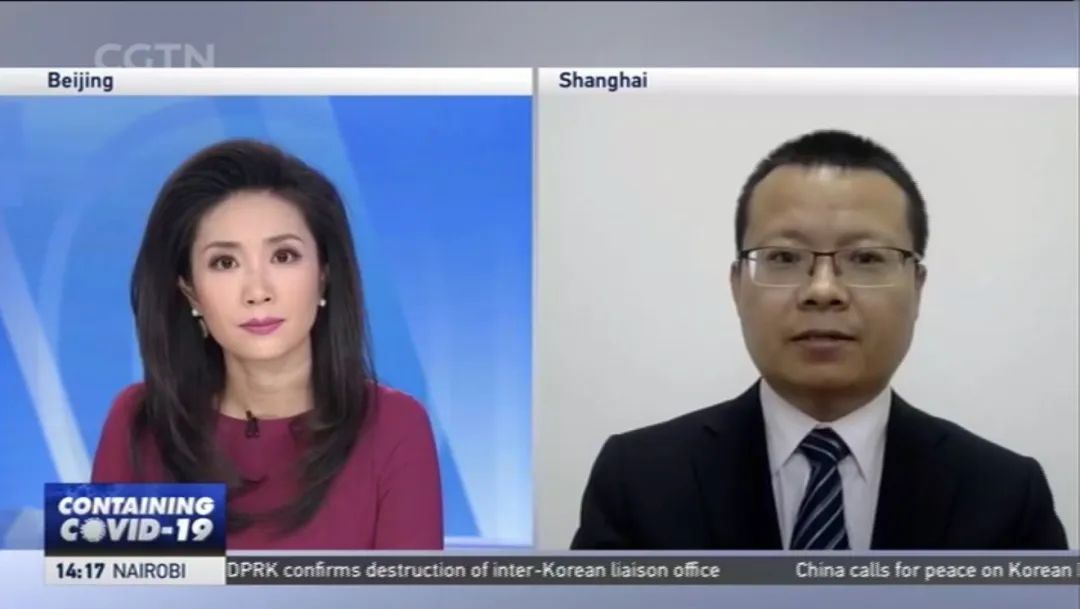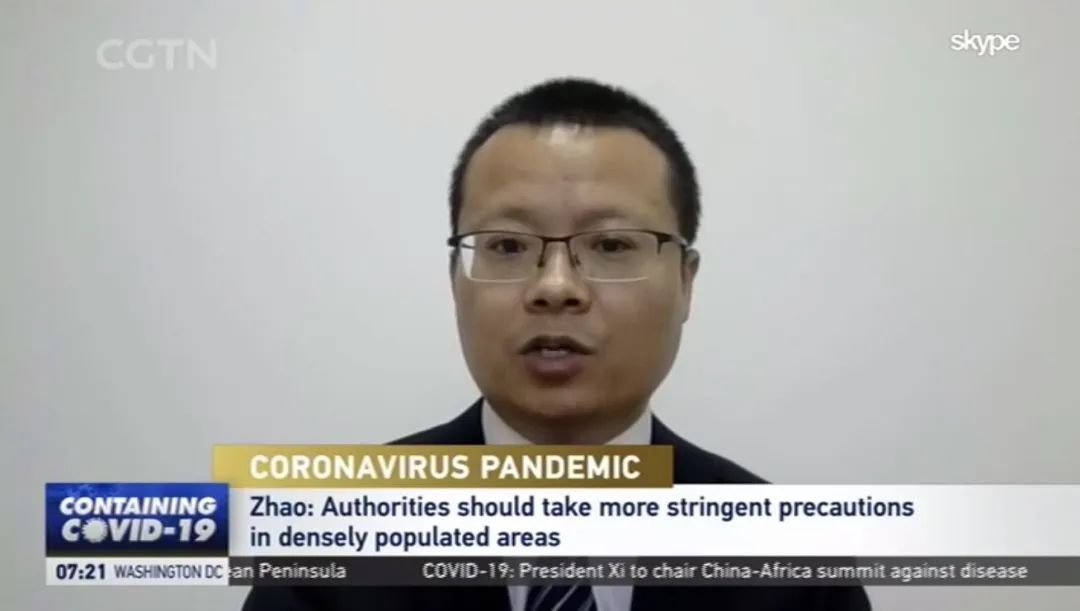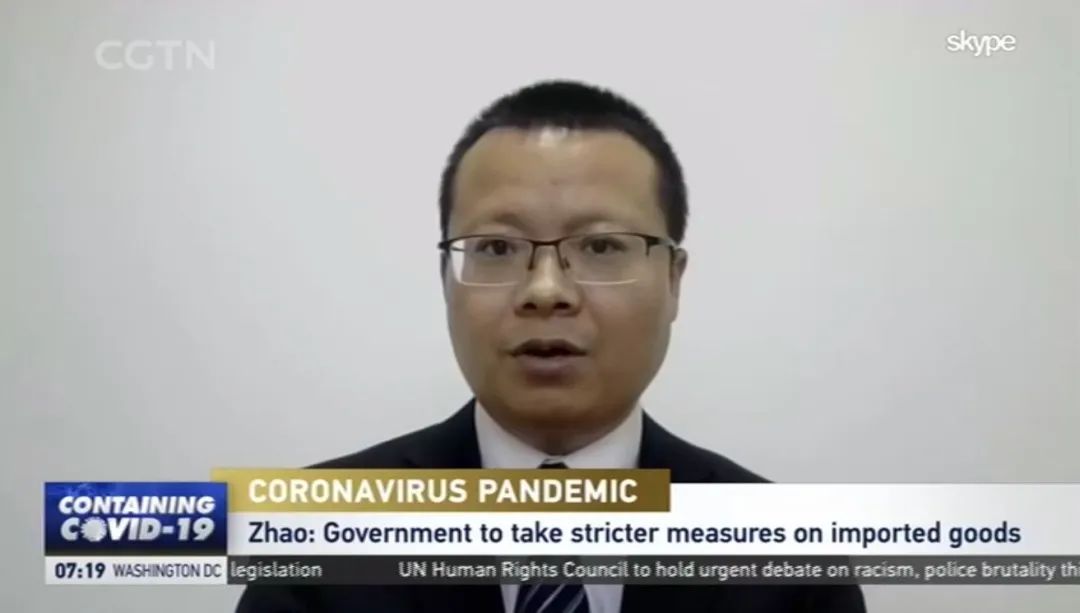上海交大赵大海关于新冠疫情第38次在电视台访谈评论:北京新冠肺炎疫情绝对不可能成为另一个武汉
上海交通大学国际与公共事务学院博士生导师、上海交通大学-耶鲁大学卫生政策联合研究中心执行主任赵大海,对于新冠肺炎疫情暴发与防控第23次在中央电视台进行直播评论,也是第38次在央视、上视进行访谈评论。在2020年6月16日,赵大海在中央电视台英语频道CGTN《中国24小时》节目,就北京疫情当前暴发阶段的评估及未来的防控提升等进行了解读和评论。现将访谈内容翻译并摘录如下。
主持人:北京新发地新冠肺炎新增病例已超过了一百例。您如何评价北京新冠肺炎疫情当前所处于的阶段?另一个问题是,北京会成为另一个武汉吗?
赵大海:鉴于北京所有新确诊病例都与新发地市场直接相关,这表明北京的疫情还处于暴发的最初阶段。北京的新冠肺炎疫情将很快得到控制,北京绝对不可能成为另一个武汉。之所以做出以上判断最重要的依据是,北京目前的大流行防控机制在完善性和科学性上是半年前的武汉所无法比拟的。武汉在2019年12月的时候,对于新冠肺炎是什么无从知晓,甚至对于新冠肺炎是否能人传人还无法确认。这使得武汉错失了在早期阶段控制该疫情暴发的最佳时机。然而,对于目前北京新发地市场的疫情,北京市政府在疫情暴发初期就已实施了严格防控措施。具体而言,在很短的时间内,新发地市场所有约八千名工人全部完成了核酸检测,对于近两周到过新发地市场的所有约20万人都已摸排清楚,并均在家中隔离,等待核酸检测。因此,无论新发地市场疫情暴发的源头在哪里,都不可能导致第二波疫情的大暴发,而且疫情肯定会在很短的时间内得到控制。
主持人:您认为北京的当前疫情防控措施是否足以防控本次疫情的大暴发?
赵大海:总体来说,北京市政府对于疫情防控的措施还是比较到位的。然而,新发地市场疫情似乎与我国之前暴发的疫情有一定的区别。因此,当前的防控措施还应进一步完善。首先,近3个月来,我国政府对新冠肺炎疫情防控措施的重点是海外入境的人员。然而,新发地市场疫情提示:政府也应该关注从国外进口的冷冻肉或海产品等进口物品。因此,政府有必要采取严格措施,对所有进口物品进行病毒检查和消毒。第二,地方政府应进一步提高新发传染病的监测、预警和应急能力,以应对随时可能发生的局部新冠肺炎疫情暴发。虽然北京新发地市场疫情,在比较早的阶段就已得到了监测和预警,但距离完善和高效的监测、预警能力还有很大的差距。地方政府应借此机会尽快开发出相应的监测和预警系统,不仅是为了应对新冠肺炎,更是为了应对将来所有潜在的新发重大传染病。
供稿者:国务学院
日期:2020年6月17日
Dahai Zhao' 38th comments on TV during the Pandemic: Beijing's COVID-19 epidemic was by no means another Wuhan
Dahai Zhao, a doctoral supervisor at School of International and Public Affairs of Shanghai Jiao Tong University and Executive Director of Shanghai Jiao Tong University-Yale University Joint Research Center for Health Policy, has been interviewed by CGTN for the 23th time (the 38th time by CGTN / ShanghaiTV) since the COVID-19 pandemic. On June 16, 2020, Zhao commented on the Beijing's COVID-19 epidemic on “China 24”.
Anchor: How do you evaluate the current stage of the coronavirus in Beijing? Will Beijing become another "Wuhan"?
Zhao: Considering all new confirmed cases in Beijing are directly linked to Xinfadi Market, it shows the outbreak in Beijing is in the very early stage of the outbreak. The COVID-19 in Beijing will be under control soon. It is impossible for Beijing to become another Wuhan. The most important reason is that the current pandemic control mechanism in Beijing is much better and much more scientific than Wuhan in half a year ago. In December of 2019 in Wuhan, we did not know what the COVID-19 was, even we did not know whether it is human to human transmission. It made us lose the best chance to control the pandemic in the early stage. For the current outbreak at Xinfadi Market, Beijing local government has taken stringent measures at the very early stage of the outbreak. Specifically, in a very short time, all about 8 thousand workers at Xinfadi Market have finished the nucleic acid test, and all about 200 thousand people who have been to the Market in the last two weeks have bee isolated at home, and waiting for the nucleic acid test. Therefore, whatever the source of the outbreak at Xinfadi market, it is impossible to lead to a second wave of the outbreak, and it will be under control in a very short time.
Anchor: Is Beijing's prevention and control measures enough for the new outbreak?
Zhao: Generally speaking, what Beijing local government did is not bad. However, the new outbreak of COVID-19 seems to be different with previous outbreaks in China. Therefore, the prevention and control measures should be further improved. First, for the last about 3 months, the focus of the prevention and control measures of COVID-19 for our government is the people who entered China from abroad. However, the outbreak at Xinfadi market suggests that the government should also pay attention to the imports such as frozen meat or seafood imported from abroad. Therefore, the government may take stringent measures such as the virus inspection and disinfection for all imported goods. Second, the local government should improve the ability of monitoring and early warning of, as well as response to, the potential local outbreak of COVID-19 using more targeted approach. Although the new outbreak in Beijing was monitored in the early stage of the outbreak. the monitoring, early waring and response mechanism is far from perfect. The government may take this chance to develop the monitoring and early warning system not only for the COVID-19, but also for all potential new major infectious diseases.
Contributor: SIPA, SJTU
Data: June 17

